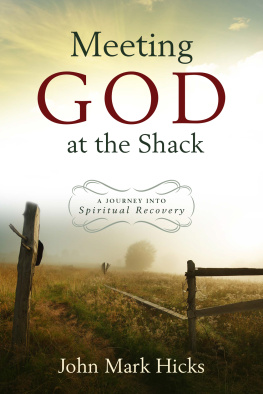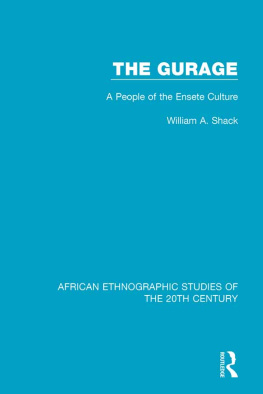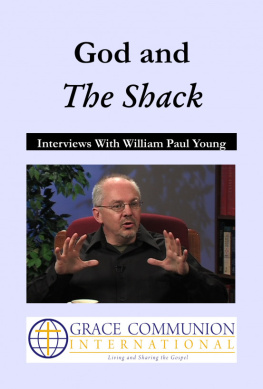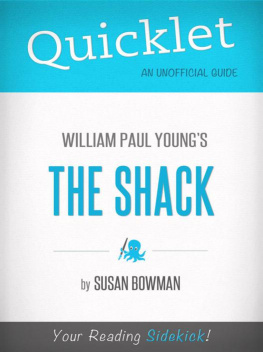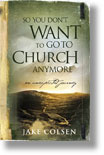A broken and contrite spirit,
O God, you will not despise.
PSALM 51:17
William P. Youngs The Shack became a national bestseller in 2008. As of July 2009it had sold 7.2 million copies. It remained on the New York Times Best Sellers listfor more than a year. More importantly, it has touched the hearts of many hurtingpeople. At the same time, Youngs book has been the object of hostile attacks fromthose who believe the novel undermines Christian orthodoxy.
I read the book at the end of January 2008. Moved to tears several times, I was emotionallyand intellectually engaged by Youngs storytelling. This modern parable addressessome of the most perplexing topics of Christian theology as well as some of humanitysmost gut-wrenching experiences. Writing about Trinity (God as three and one), atonement(why did Jesus die?), providence (how God works in the world), suffering, theodicy(can God justify evil?), death of children, parental abuse, forgiving murderers,forgiving self, forgiving God, and incarnation (is Jesus both God and human?) isdifficult prose to write, even more difficult to describe in a novel. Such an ambitioustask is either foolhardy or courageous but nevertheless at least interesting andintriguing. I found it compelling.
As the book emerged as a phenomenon, several asked me to review it and comment onsome of the theological controversy surrounding it. Since I had experienced hurtand pain similar to what the novel describes and had prayed, reflected, taught (inchurches and academia), and written about that pain, some thought perhaps I mighthave something helpful to say about how to read this novel. I have hesitated forseveral reasons.
I read the book on the verge of my own crisis. I would confront some of my own demonsin the first weeks of February 2008. I entered a period of rest from ministry andacademia just after reading Youngs work. Sometimes I wonder if the book even contributedto the timing of my own shack as it introduced me to recovery ideas. In any event,I did not want to rush into the blogosphere or into print about the story. I neededtime to process my own stuff without focusing on Youngs shack.
Also, I was rather uninterested in the theological controversy swirling around thebook. I did not want to engage in any theological debates, nuances, or heresy trials.I did not want to spend time parsing the meaning and specifics of parabolic descriptionsand dialogue as if in a heated religious or academic debate. Ultimately, I came tobelieve the novel had a much more important significance than those disputes.
Further, the subjects Young discusses are close to my own story, heart, and study.Some of the story was too painful to discuss early on. Some of it was too ambiguous(as it seemed at first reading) to pursue with any profit. I needed to work throughmy own shack before engaging Youngs parable.
Toward the end of 2008, I changed my mind. The previous several months of my ownrecovery prepared me to read Youngs work again but this time more empathetically.I am still rather uninterested in the theological debates, since I find most of themto be picky and distortions of Youngs intent. Instead, I am interested in the spiritualtherapy, recovery, and healing available through the book as Gods Spirit uses itfor such.
I turned my attention to Youngs novel after I received a request to lecture on itnear the end of September 2008. I was asked to substitute for a speaker who was scheduledto speak on The Shack at the 2008 Zoe Conference in Nashville, Tennessee. I had notspoken anywhere since the first weekend of February. I did not intend to speak anywherefor the rest of 2008, other than in a Bible class at the Woodmont Hills Family ofGod in Nashville beginning that November. However, this invitation seemed like Godstiming.
As my wife, Jennifer, and I talked about the possibility, it became clear to us thatperhaps this was a moment designed by God for my sake. We discerned that this isabout what God wants to do in my shack. It would give me an opportunity to reflectin a focused way on my own story in the light of Youngs parable and metaphors. Inother words, I agreed to speak for my own sake more than any other motive.
I had lots of anxiety about speaking, particularly on the emotional subjects thatThe Shack raises. But Jennifer, my spiritual advisors, and I felt it was time, andthis was an opportunity practically (more accurately, divinely) tailored for me.I felt called to speak again at that moment at that time on that subject.
So, I read The Shack again. It was a different experience for two reasons. First,I listened to Paul Young talk about his own story. This is available in many formatson the Internet from webcasts to podcasts. Any part of his story I tell in this bookis derived from his own public words available through the Internet. Second, thistime I heard the language of spiritual recovery since I now had ears to hear dueto my own journey into emotional, spiritual, and psychological healing.
Consequently, my engagement with The Shack does not begin with the controversialquestions for which the book has been attacked. Some of them are good questionsgoddessworship? open theism? modalism? (some readers are even now saying huh?)but theyare marginal to my concerns as a griever and a recovering addict. And we are alladdictssin itself is an addiction before which we are powerless on our own (Rom.7), and we all express our brokenness in some form of specific powerlessnessovereating,shopping, sex, alcohol, drugs, materialism, work, busyness, television, video games,and so on. Reading The Shack as a wounded person, as an addict, is much more importantthan wrestling with the theological questions it raises.
The first part of this book discusses spiritual recovery, while the second part addressessome of the theological questions that concern many. But even in the second partI am much more interested in how this parable and the theological questions it raisesoffer an entrance into the substantial themes of divine love, forgiveness, healing,and hope. These are the main concerns of the book.
I think the question the novel addresses is this:
How do wounded people come to believe God deeply loves them?
Reading the book through this lens enables us to understand how Young uses somerather unconventional metaphors to deepen his point.
My interest is to unfold the story of recovery in The Shack as I experienced it throughmy own journey. So, I invite you to walk with me through the maze of grief, hurt,and pain as we, through experiencing Mackenzies shack, face our own shacks.
I will open my mouth with a parable,
I utter hidden things, things from of old.
PSALM 78:2
While some have perhaps read The Shack as an actual account, the title page identifiesthe piece as a novel. This is a fictional story. But it is nevertheless true.
When Paul Young talks about his book, he identifies it as an extended modern parable.Like a parable, the events described are fictional though possible (that is, it isnot science fiction). And, like a parable, it becomes a world into which we stepto hear something true about God, life, and the soul.
The Prodigal Son (Luke 15), for example, is a fictional but true story. As fiction,the story has no correspondence in fact; that is, it is not a story about a specific,actual family. No one walked up to Jesus after the parable to ask the name of theson, which family he came from, and into which far country he went. Whether itis actual history or not is irrelevant. It is a fictional tale. But the story isnevertheless true. The Prodigal Son says something true about God and Gods relationshipwith others.

